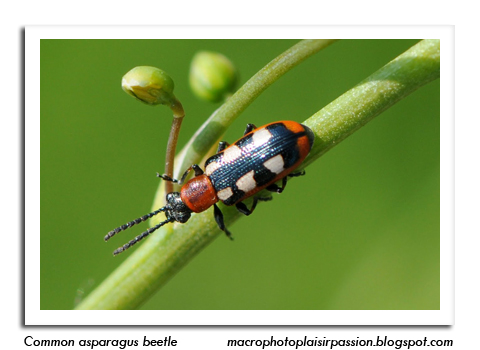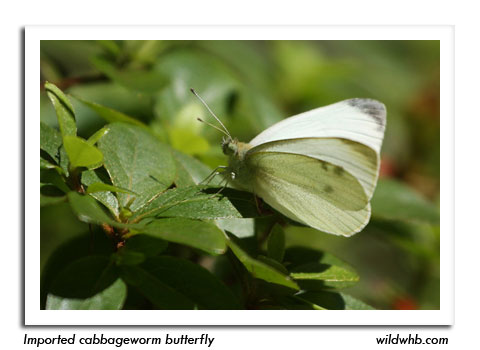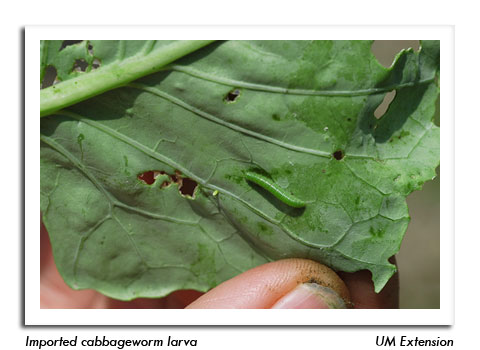
 |
|
|
Vegetables
Volume 62 Number 1 Date 04/27/2017 COMMON ASPARAGUS BEETLE - Beetle emergence and egg deposition on asparagus spears have begun near Beloit, La Crosse, Platteville and other advanced southern and western locations. Plants should be examined for adults and eggs on warm, sunny afternoons when the beetles are most active. Control may be considered if 5-10 beetles are found per 100 spears or if eggs are present on at least two of 100 spears, ferns, or flower buds. Eliminating the adults early in spring, before significant egg laying has occurred, is the most effective management strategy. IMPORTED CABBAGEWORM - Adults have been emerging since late March. The presence of these yellowish-white butterflies around field plantings and home gardens indicates eggs are being laid on early-planted or transplanted broccoli, cabbage, kale and other cole crops. Two basic measures to reduce early ICW damage are to ensure transplants are free of larval contamination and to install floating row covers or another physical barrier to prevent oviposition on cole crop plantings. Btk products for ICW control must be applied while larvae are small. CABBAGE MAGGOT - Peak emergence of first-generation flies has occurred throughout southern and west-central Wisconsin, from Racine north to Eau Claire. Cabbage maggot eggs are being laid in areas of the state where the common lilac is in full bloom. Broccoli and cauliflower grown on light sandy soils are at highest risk of maggot infestation at this time of year and should be closely monitored early next month for signs of injury. Cole crops transplanted next week or in early May will be theoretically less at risk of infestation now that critical first-generation egg laying period has passed. -- Krista Hamilton, DATCP Entomologist 


|
|
|